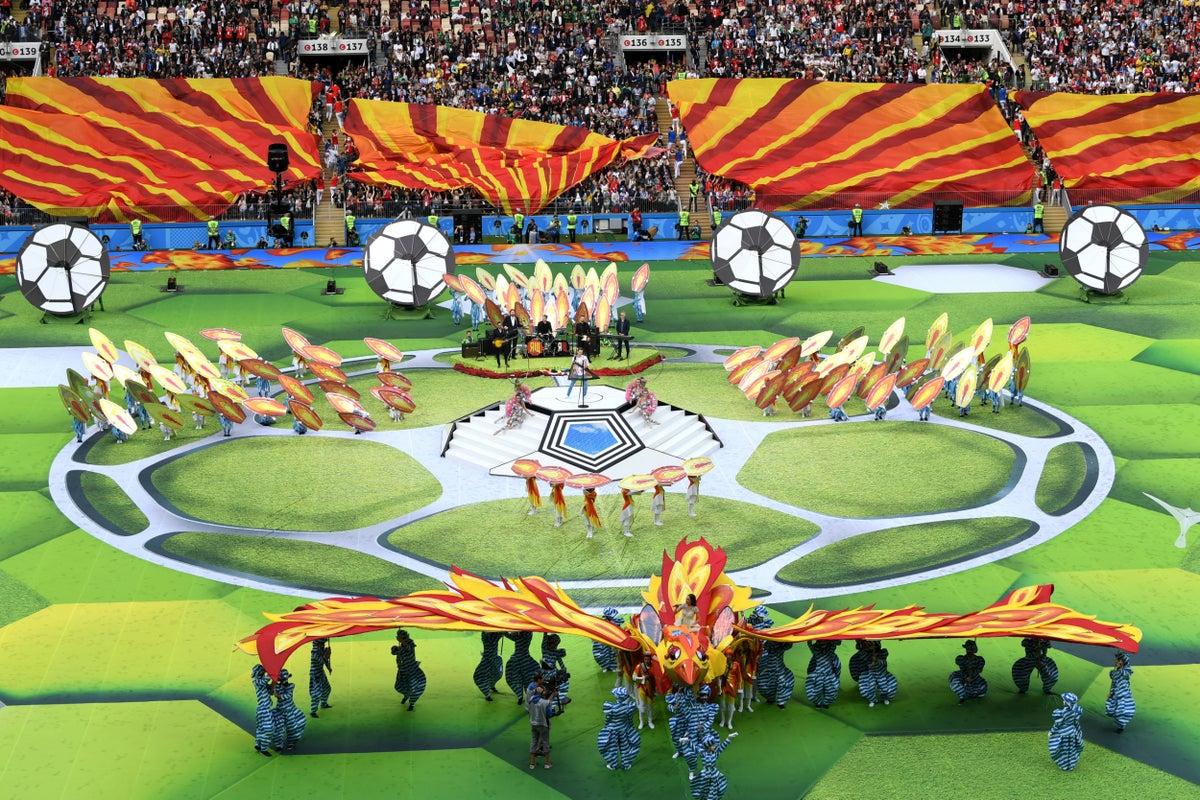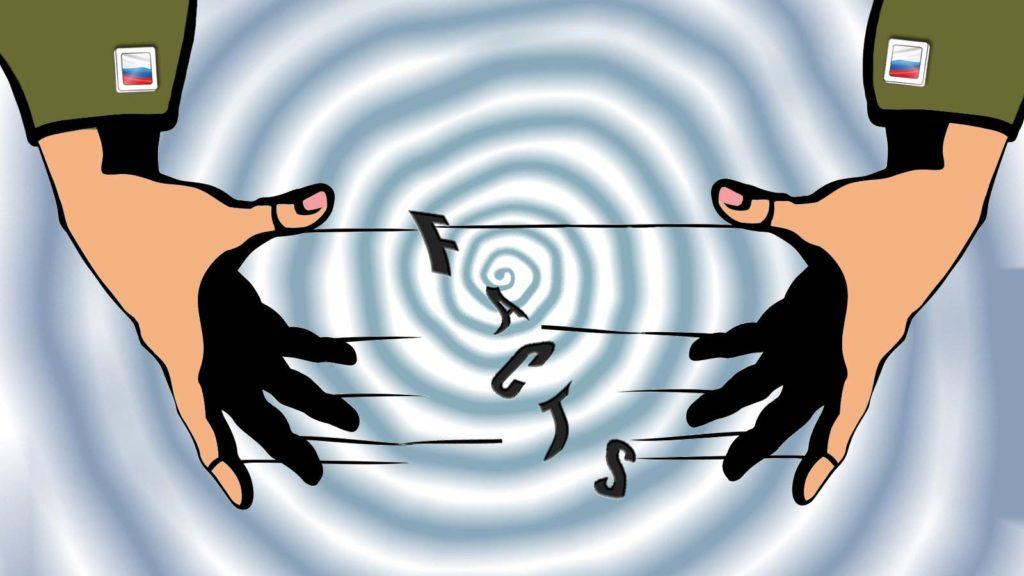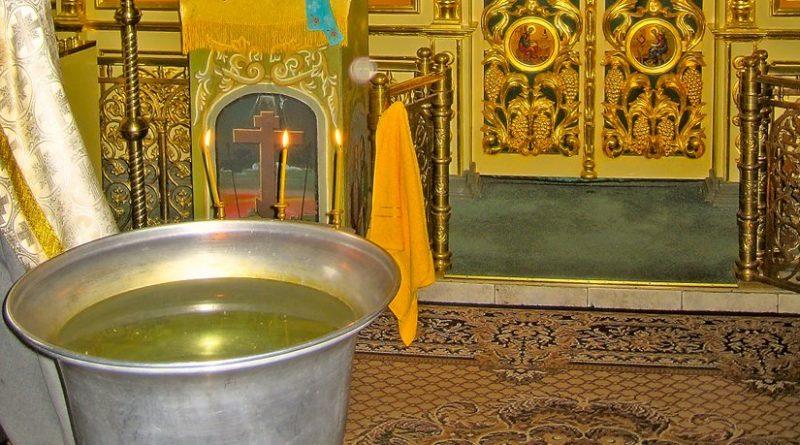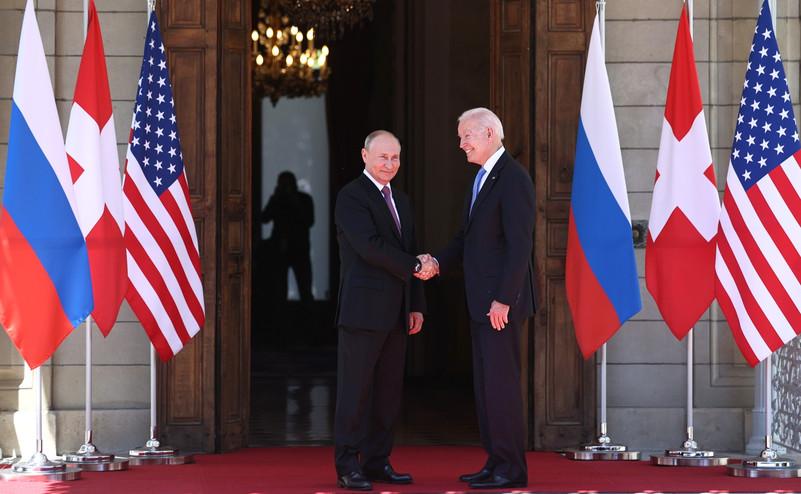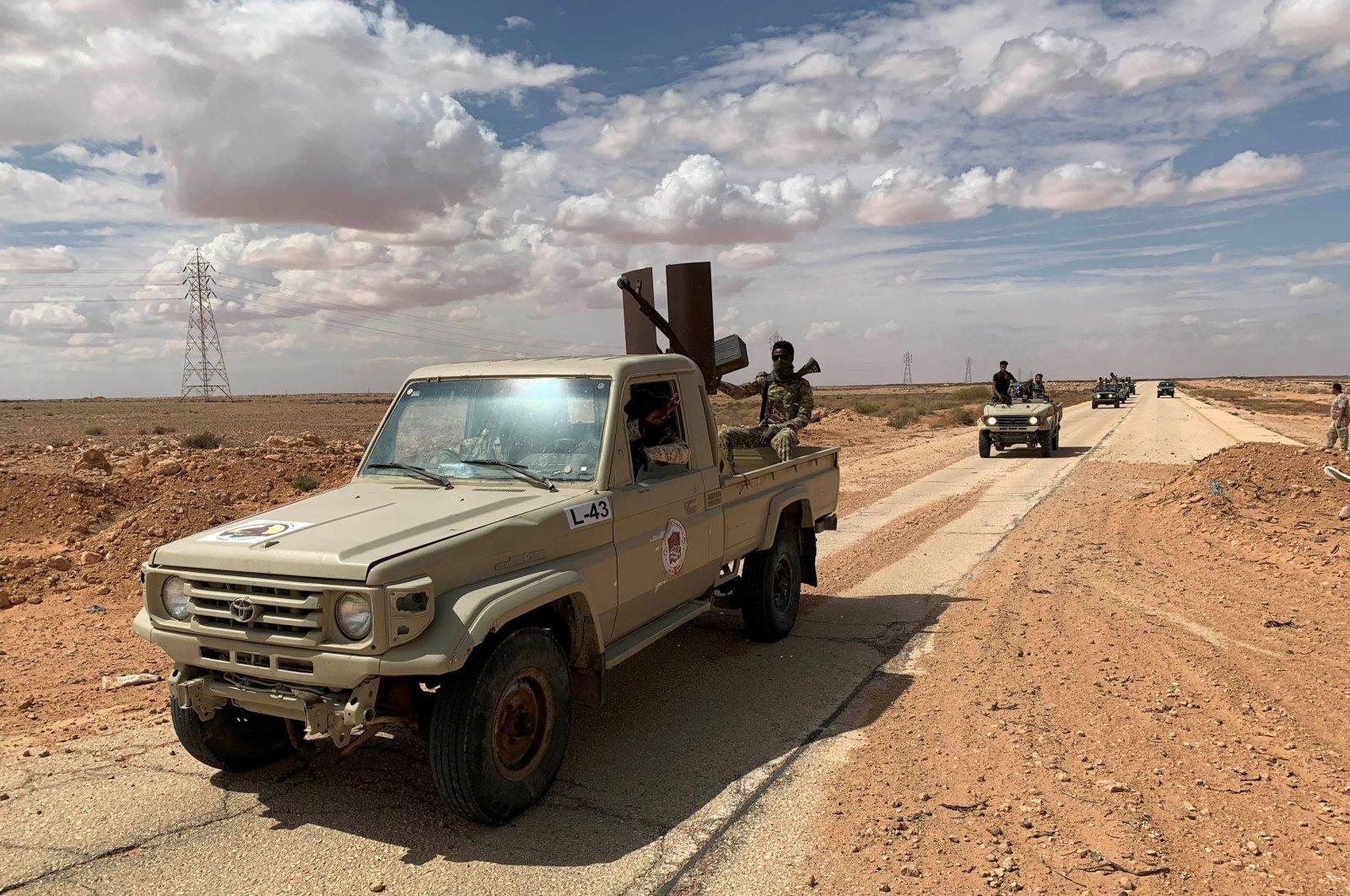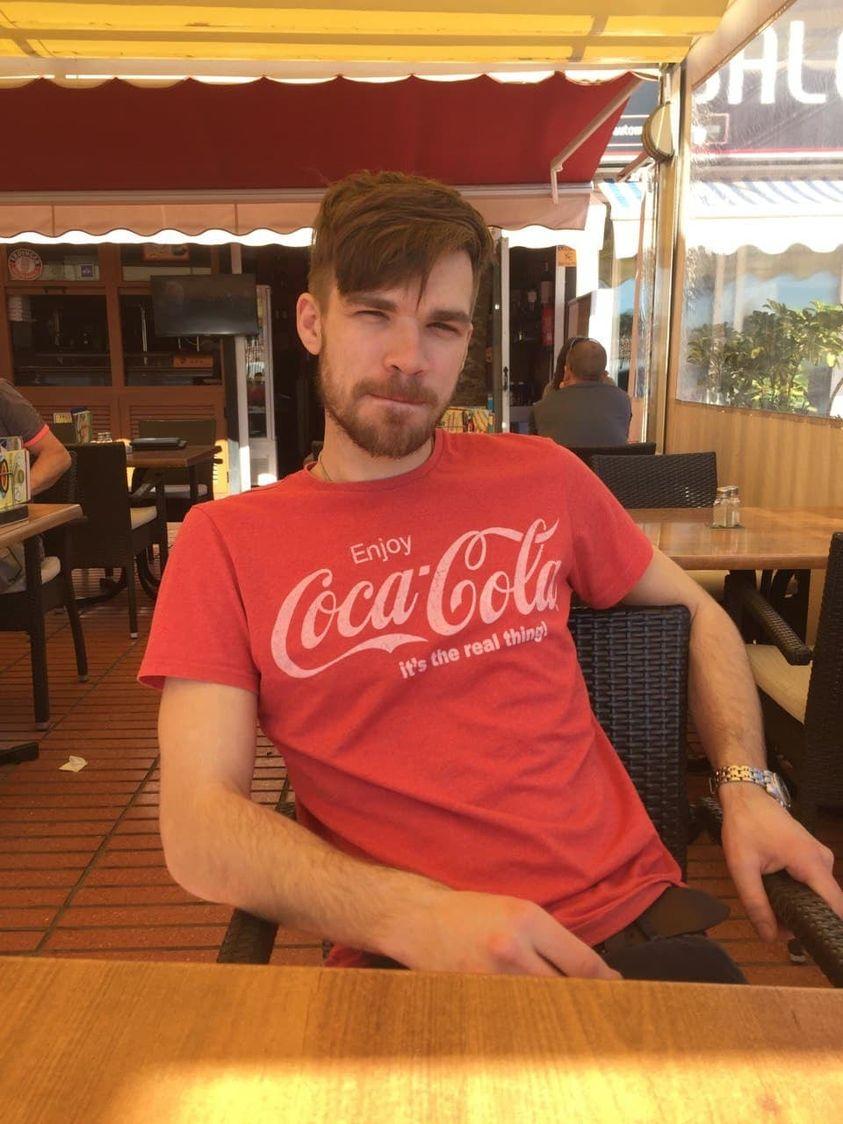BRT is a non-profit Facebook page demanding that cable/satellite providers suspend Putin's "Russia Today" (RT) Television until the Kremlin respects Ukraine's sovereignty. See Less
Russia Today (RT) television is Russian strongman Putin's mouthpiece in North America to justify his invasion of the Crimea and his interference in Ukraine generally.
RT reaches 85 million people in the U.S. via major cable, satellite and other pay TV providers.
This webpage urges:
(1) U.S. cable television, satellite, and other pay TV providers to suspend RT immediately from their channel line-ups until such time as Putin respects Ukraine's' territorial integrity; and
(2) U.S. viewers to boycott RT in the meantime.
POSTING GUIDELINES:
Subject to the following, open discussion is encouraged:
A. No trolling.
B. Redundant and/or off-topic posts will be removed. In that regard, please be aware that this is a boycott page supporting the suspension of RT. Posters who wish to rant or rave ad nauseam about how great RT, how terrible the West is, or how awful something other than RT is, may want to consider visiting RT's page, etc. (RT, with its $300MM budget, has more than adequate resources to advocate its own positions.)
C. No profanity in any language or personal attacks on other posters.
These posting guidelines are subject to change.
TERMS OF USE:
LIMITATION OF LIABILITY: IN NO EVENT WILL BOYCOTT RUSSIA TODAY, ITS AFFILIATES, LICENSORS, OR SERVICE PROVIDERS, OR ITS/THEIR SPONSORS, VOLUNTEERS, EMPLOYEES, AGENTS, PRINCIPALS, HOSTS, CREATORS, CONTRIBUTORS, CONTRACTORS, OFFICERS OR DIRECTORS BE LIABLE FOR DAMAGES OF ANY KIND, UNDER ANY LEGAL THEORY, ARISING OUT OF OR IN CONNECTION WITH YOUR USE, OR INABILITY TO USE, THE BOYCOTT RUSSIA TODAY WEBSITE/WEBPAGE, ANY WEBSITE/WEBPAGE LINKED TO IT, ANY CONTENT ON THE WEBSITE/WEBPAGE OR SUCH OTHER WEBSITES/WEBPAGES OR ANY INFORMATION, SERVICES, OR ITEMS OBTAINED THROUGH THE WEBSITE/WEBPAGE OR SUCH OTHER WEBSITE/WEBPAGE, INCLUDING ANY DIRECT, INDIRECT, SPECIAL, INCIDENTAL, CONSEQUENTIAL OR PUNITIVE DAMAGES, INCLUDING BUT NOT LIMITED TO, PERSONAL INJURY, PAIN AND SUFFERING, EMOTIONAL DISTRESS, LOSS OF REVENUE, LOSS OF PROFITS, LOSS OF BUSINESS OR ANTICIPATED SAVINGS, LOSS OF USE, LOSS OF GOODWILL, LOSS OF DATA, AND WHETHER CAUSED BY TORT (INCLUDING NEGLIGENCE), BREACH OF CONTRACT OR OTHERWISE, EVEN IF FORESEEABLE. AMONG OTHER THINGS, THE LIMITATIONS ABOVE SHALL LIMIT YOUR ABILITY, OR THE ABILITY OF ANYONE ACTING ON YOUR BEHALF OR THROUGH YOU, TO RECOVER ANY AND ALL DAMAGES FROM OR AGAINST THE PARTIES REFERENCED ABOVE ARISING FROM OR RELATED TO PARTICIPATION IN ANY EVENT (INCLUDING, WITHOUT LIMITATION, ANY RALLY OR PROTEST) THAT IS REFERENCED ON, OR LINKED FROM, THE WEBSITE/WEBPAGE. THE FOREGOING DOES NOT AFFECT LIABILITY, IF ANY, WHICH CANNOT BE EXCLUDED OR LIMITED UNDER APPLICABLE LAW.
Indemnification: You agree to defend, indemnify and hold harmless Boycott Russia Today, its affiliates, licensors and service providers, and its and their respective volunteers, employees, agents, principals, hosts, creators, contributors, contractors, officers and directors, from and against any claims, liabilities, damages, judgments, awards, losses, costs, expenses or fees (including reasonable attorneys' fees) arising out of or relating to your violation of these Terms of Use or your use of the Website/Webpage, including, but not limited to, your contributions to the Website/Webpage, any use of the Website/Webpage's content or services, or your use of any information obtained from the Website/Webpage.
Russia Today (RT) television is Russian strongman Putin's mouthpiece in North America to justify his invasion of the Crimea and his interference in Ukraine generally.
RT reaches 85 million people in the U.S. via major cable, satellite and other pay TV providers.
This webpage urges:
(1) U.S. cable television, satellite, and other pay TV providers to suspend RT immediately from their channel line-ups until such time as Putin respects Ukraine's' territorial integrity; and
(2) U.S. viewers to boycott RT in the meantime.
POSTING GUIDELINES:
Subject to the following, open discussion is encouraged:
A. No trolling.
B. Redundant and/or off-topic posts will be removed. In that regard, please be aware that this is a boycott page supporting the suspension of RT. Posters who wish to rant or rave ad nauseam about how great RT, how terrible the West is, or how awful something other than RT is, may want to consider visiting RT's page, etc. (RT, with its $300MM budget, has more than adequate resources to advocate its own positions.)
C. No profanity in any language or personal attacks on other posters.
These posting guidelines are subject to change.
TERMS OF USE:
LIMITATION OF LIABILITY: IN NO EVENT WILL BOYCOTT RUSSIA TODAY, ITS AFFILIATES, LICENSORS, OR SERVICE PROVIDERS, OR ITS/THEIR SPONSORS, VOLUNTEERS, EMPLOYEES, AGENTS, PRINCIPALS, HOSTS, CREATORS, CONTRIBUTORS, CONTRACTORS, OFFICERS OR DIRECTORS BE LIABLE FOR DAMAGES OF ANY KIND, UNDER ANY LEGAL THEORY, ARISING OUT OF OR IN CONNECTION WITH YOUR USE, OR INABILITY TO USE, THE BOYCOTT RUSSIA TODAY WEBSITE/WEBPAGE, ANY WEBSITE/WEBPAGE LINKED TO IT, ANY CONTENT ON THE WEBSITE/WEBPAGE OR SUCH OTHER WEBSITES/WEBPAGES OR ANY INFORMATION, SERVICES, OR ITEMS OBTAINED THROUGH THE WEBSITE/WEBPAGE OR SUCH OTHER WEBSITE/WEBPAGE, INCLUDING ANY DIRECT, INDIRECT, SPECIAL, INCIDENTAL, CONSEQUENTIAL OR PUNITIVE DAMAGES, INCLUDING BUT NOT LIMITED TO, PERSONAL INJURY, PAIN AND SUFFERING, EMOTIONAL DISTRESS, LOSS OF REVENUE, LOSS OF PROFITS, LOSS OF BUSINESS OR ANTICIPATED SAVINGS, LOSS OF USE, LOSS OF GOODWILL, LOSS OF DATA, AND WHETHER CAUSED BY TORT (INCLUDING NEGLIGENCE), BREACH OF CONTRACT OR OTHERWISE, EVEN IF FORESEEABLE. AMONG OTHER THINGS, THE LIMITATIONS ABOVE SHALL LIMIT YOUR ABILITY, OR THE ABILITY OF ANYONE ACTING ON YOUR BEHALF OR THROUGH YOU, TO RECOVER ANY AND ALL DAMAGES FROM OR AGAINST THE PARTIES REFERENCED ABOVE ARISING FROM OR RELATED TO PARTICIPATION IN ANY EVENT (INCLUDING, WITHOUT LIMITATION, ANY RALLY OR PROTEST) THAT IS REFERENCED ON, OR LINKED FROM, THE WEBSITE/WEBPAGE. THE FOREGOING DOES NOT AFFECT LIABILITY, IF ANY, WHICH CANNOT BE EXCLUDED OR LIMITED UNDER APPLICABLE LAW.
Indemnification: You agree to defend, indemnify and hold harmless Boycott Russia Today, its affiliates, licensors and service providers, and its and their respective volunteers, employees, agents, principals, hosts, creators, contributors, contractors, officers and directors, from and against any claims, liabilities, damages, judgments, awards, losses, costs, expenses or fees (including reasonable attorneys' fees) arising out of or relating to your violation of these Terms of Use or your use of the Website/Webpage, including, but not limited to, your contributions to the Website/Webpage, any use of the Website/Webpage's content or services, or your use of any information obtained from the Website/Webpage.
-
3 людям нравится это
-
0 Записей
-
0 Фото
-
0 Видео
-
History and Facts
© 2025 Omaada - A global social and professionals networking platform
 Russian
Russian
Недавние обновления
-
Russian Woman Jailed For High Treason On Hunger Strike Over Sanitary Condition In Cell
KALININGRAD, Russia -- The condition of a Russian woman who launched a dry hunger strike to protest against the "anti-sanitary conditions" of her prison cell is deteriorating rapidly.
Antonina Zimina's father, Konstantin Zimin, told RFE/RL on September 15 that his daughter, who was handed a 13-year prison sentence on high treason charges she denies, is refusing both food and water.
"Antonina has been on a dry hunger strike for five days. Death usually occurs around the seventh day," he said in noting her state of health.
Zimin said that his daughter started the hunger strike after she was moved to a so-called "transit" cell in the detention center in the Russian exclave of Kaliningrad on September 7, from which convicts are sent to prisons to serve their terms.
Zimina informed her father by letter that there were 15 women in the cell and that the toilets and sewage system did not work. After the detention center's administration ignored the women's request to fix the toilet and sewage, Zimina started the hunger strike and four other women joined her.
Zimina and her husband, Konstantin Antonets, were convicted of spying for Latvia, in December. The charges against them stemmed from a wedding photo that included an officer of the Federal Security Service.
Antonets was handed a 12 1/2 years prison sentence. The couple has denied any wrongdoing ever since they were first arrested in July 2018.
On September 15, Russia's Supreme Court rejected the couple's appeal and upheld their sentences.
In recent years, the number of cases of alleged high treason has increased dramatically in Russia.
One of the latest high-profile high treason cases involves Ivan Safronov, a journalist and an aide to Russian Roskosmos space agency chief, Dmitry Rogozin.
Safronov was arrested on July 7 and later charged with passing classified materials to the Czech Republic. Safronov and his supporters reject the charge.Russian Woman Jailed For High Treason On Hunger Strike Over Sanitary Condition In Cell KALININGRAD, Russia -- The condition of a Russian woman who launched a dry hunger strike to protest against the "anti-sanitary conditions" of her prison cell is deteriorating rapidly. Antonina Zimina's father, Konstantin Zimin, told RFE/RL on September 15 that his daughter, who was handed a 13-year prison sentence on high treason charges she denies, is refusing both food and water. "Antonina has been on a dry hunger strike for five days. Death usually occurs around the seventh day," he said in noting her state of health. Zimin said that his daughter started the hunger strike after she was moved to a so-called "transit" cell in the detention center in the Russian exclave of Kaliningrad on September 7, from which convicts are sent to prisons to serve their terms. Zimina informed her father by letter that there were 15 women in the cell and that the toilets and sewage system did not work. After the detention center's administration ignored the women's request to fix the toilet and sewage, Zimina started the hunger strike and four other women joined her. Zimina and her husband, Konstantin Antonets, were convicted of spying for Latvia, in December. The charges against them stemmed from a wedding photo that included an officer of the Federal Security Service. Antonets was handed a 12 1/2 years prison sentence. The couple has denied any wrongdoing ever since they were first arrested in July 2018. On September 15, Russia's Supreme Court rejected the couple's appeal and upheld their sentences. In recent years, the number of cases of alleged high treason has increased dramatically in Russia. One of the latest high-profile high treason cases involves Ivan Safronov, a journalist and an aide to Russian Roskosmos space agency chief, Dmitry Rogozin. Safronov was arrested on July 7 and later charged with passing classified materials to the Czech Republic. Safronov and his supporters reject the charge.0 Комментарии 0 Поделились 0 предпросмотрВойдите, чтобы отмечать, делиться и комментировать! -
FROM HYBRID WAR TO BUYING WEAPONS, BELARUS IS UNDER EXTERNAL THREAT
There are many different ways of looking at disinformation, with all its techniques, narratives, and instruments. One of the approaches offering a more thorough understanding is the Adversarial Misinformation and Influence Tactics and Techniques (AMITT)(opens in a new tab) framework. It is based on the standards and tooling used in the information security community, but modified so the techniques listed can be applied to detect and disrupt influence operations, including disinformation.
Disinformation cases collected this week consider, among others, Belarus. They include rather uneasy narratives such as hybrid war facing the country; West planning to tear Belarus away from Russia; and the evil West engaging in information warfare.
In addition, the “hostilities and provocations from Ukraine” are being countered by the Belarussian regime by buying weapons en masse, despite the fact that Ukraine has no plans to destabilise its neighbour. In other words, the cases above claim that Belarus is under malign external threat.
Distort facts
The AMITT framework(opens in a new tab) lists ten different techniques to spread disinformation and manipulate the audiences, including creating fake research, leaking altered documents (examples published on EUvsDisinfo include a fake letter and a fake ID) and generating information pollution (as in the Skripal case). Other examples of how to modify the world to suit pro-Kremlin facts also include denying involvement (still used regarding Ukraine) and demanding proof (case of MH17 flight tragedy).
Disinformation is often knitted around a kernel of truth. This week we found two examples where content from a respected source was adjusted to fit the pro-Kremlin worldview. First, French Sputnik misrepresented an article from the Financial Times by falsely claiming that EU and US sanctions had boosted the Russian economy. The same Sputnik also distorted an investigation by CNN to support the theory that the CIA destabilised relations between Minsk and Moscow. In reality the CIA didn’t play a leading role in the operation in question.
Channels
AMITT also lists many social media outlets that can be used to promote and disseminate distorted messages. One way to see how the Kremlin-controlled media uses these possibilities and also to measure the effectiveness of their work is to check how many likes, shares and comments on social media an article received.
Looking at examples of disinforming content mentioned in this text, the only successful articles on social media were created by French Sputnik receiving 791 engagements for the FT article and 70 engagements for the article referring to the CNN investigation.
Amplification
In addition to social media the framework also lists tertiary websites as handy to further convey the message. A good example is a false claim about the West allocating $5 billion to support the coup in Ukraine that was made accessible on six Arabic sites that referred back to Sputnik Arabic.
Then again, our Disinformation Cases Database has many Arabic cases where more than ten outlets spread the same message often originating from RT or Sputnik.
Play the long game
The AMITT framework concludes with techniques describing the persistence of disinforming activities. When looking at our Disinformation Cases Database and projecting the activities of the Kremlin into the future, it’s clear that disinformation is not evanescent and it won’t disappear like the morning fog. However, it will have a similar effect on people’s view on the world as haze or smog.FROM HYBRID WAR TO BUYING WEAPONS, BELARUS IS UNDER EXTERNAL THREAT There are many different ways of looking at disinformation, with all its techniques, narratives, and instruments. One of the approaches offering a more thorough understanding is the Adversarial Misinformation and Influence Tactics and Techniques (AMITT)(opens in a new tab) framework. It is based on the standards and tooling used in the information security community, but modified so the techniques listed can be applied to detect and disrupt influence operations, including disinformation. Disinformation cases collected this week consider, among others, Belarus. They include rather uneasy narratives such as hybrid war facing the country; West planning to tear Belarus away from Russia; and the evil West engaging in information warfare. In addition, the “hostilities and provocations from Ukraine” are being countered by the Belarussian regime by buying weapons en masse, despite the fact that Ukraine has no plans to destabilise its neighbour. In other words, the cases above claim that Belarus is under malign external threat. Distort facts The AMITT framework(opens in a new tab) lists ten different techniques to spread disinformation and manipulate the audiences, including creating fake research, leaking altered documents (examples published on EUvsDisinfo include a fake letter and a fake ID) and generating information pollution (as in the Skripal case). Other examples of how to modify the world to suit pro-Kremlin facts also include denying involvement (still used regarding Ukraine) and demanding proof (case of MH17 flight tragedy). Disinformation is often knitted around a kernel of truth. This week we found two examples where content from a respected source was adjusted to fit the pro-Kremlin worldview. First, French Sputnik misrepresented an article from the Financial Times by falsely claiming that EU and US sanctions had boosted the Russian economy. The same Sputnik also distorted an investigation by CNN to support the theory that the CIA destabilised relations between Minsk and Moscow. In reality the CIA didn’t play a leading role in the operation in question. Channels AMITT also lists many social media outlets that can be used to promote and disseminate distorted messages. One way to see how the Kremlin-controlled media uses these possibilities and also to measure the effectiveness of their work is to check how many likes, shares and comments on social media an article received. Looking at examples of disinforming content mentioned in this text, the only successful articles on social media were created by French Sputnik receiving 791 engagements for the FT article and 70 engagements for the article referring to the CNN investigation. Amplification In addition to social media the framework also lists tertiary websites as handy to further convey the message. A good example is a false claim about the West allocating $5 billion to support the coup in Ukraine that was made accessible on six Arabic sites that referred back to Sputnik Arabic. Then again, our Disinformation Cases Database has many Arabic cases where more than ten outlets spread the same message often originating from RT or Sputnik. Play the long game The AMITT framework concludes with techniques describing the persistence of disinforming activities. When looking at our Disinformation Cases Database and projecting the activities of the Kremlin into the future, it’s clear that disinformation is not evanescent and it won’t disappear like the morning fog. However, it will have a similar effect on people’s view on the world as haze or smog.0 Комментарии 0 Поделились 0 предпросмотр -
Moscow’s Attacks On Religion Increasingly Resembles ‘Worst Traditions Of Militant Godlessness’ Of Soviet Times – OpEd
“Under the guise of the defense of traditional values,” Aleksandr Soldatov says, the Putin regime is reviving “the worst traditions of the times of militant godlessness,” with only these differences: it claims to be attacking extremism rather than faith as such, and it often is guided by the Russian Orthodox Church of the Moscow Patriarchate.
Most coverage of discrimination and repression against religious groups in the Russian Federation focuses on one or another denomination, detailing what the authorities are doing about it rather than considering how their approach to one religion in fact is part of a broader pattern.
Soldatov, a specialist on religious life in Russia, represents an exception to this pattern. In a new article, he considers how various groups of believers are being subject to persecution and repression in Russia today, a survey that highlight the commonalities of the state’s efforts rather than their distinctiveness (novayagazeta.ru/articles/2021/09/13/v-missionerskoi-oppozitsii).
Among the groups whose repression has attracted the greatest notice are the Jehovah’s Witnesses. Since April 2017, all of their 396 religious organizations have been declared extremist and liquidated; 540 individual Witnesses have been accused of crimes; and almost 200 have been sentenced.
Given that there were an estimated 178,000 Witnesses in Russia in 2017, that means that fewer than one percent of them have been victimized directly by the security services and prosecutorial authorities. But that has been enough to prompt even Vladimir Putin to suggest this campaign should be ended, although his comments in that respect have not been honored.
The Pentecostals are a second category of religious organizations subject to harassment and persecution. The ROC MP doesn’t like them and considers them “totalitarian.” But it can’t carry out campaigns against them easily because the Kremlin continues to interact with Bishop Sergey Rakhovsky, the head of the Pentecostal umbrella organization in Russia.
As a result, no Pentecostal leader has yet been given a real jail term, as opposed to a suspended one. Instead, officials have focused on confiscating the churches they maintain and occasionally harassing them for maintaining underground churches must as was the case in Soviet times.
According to the Memorial human rights organization, “the most repressed category [of religious believers] in present-day Russia are Muslims.” Those who are members of Islamist groups are charged and convicted on that basis alone rather than by their actions, and Muslim mosques outside of traditional Muslim areas are subject to harassment on a regular basis.
Among the denominations that the ROC MP and the Russian State are most opposed to and most willing to bring down the power of the state on are those Orthodox denominations which deviate in any way “from ‘the general line’” both religious and secular as far as the Kremlin and the Patriarchate are concerned.
Among the most significant of these groups are the so-called “totalitarian sects,” a term that has no definition in Russian law but is regularly used against groups like the Russian Orthodox Autonomous Church, the True Orthodox Church, and the Orthodox Church of Ukraine.
As one can imagine, the ROC MP “has not remained on the side of this trend and has composed an official list of ‘false-witnesses including splitters’ which supposedly are carrying out ‘illegal activity.’” In at least some cases, then, today’s secular Russian state appears to be taking its lead from the ROC MP.Moscow’s Attacks On Religion Increasingly Resembles ‘Worst Traditions Of Militant Godlessness’ Of Soviet Times – OpEd “Under the guise of the defense of traditional values,” Aleksandr Soldatov says, the Putin regime is reviving “the worst traditions of the times of militant godlessness,” with only these differences: it claims to be attacking extremism rather than faith as such, and it often is guided by the Russian Orthodox Church of the Moscow Patriarchate. Most coverage of discrimination and repression against religious groups in the Russian Federation focuses on one or another denomination, detailing what the authorities are doing about it rather than considering how their approach to one religion in fact is part of a broader pattern. Soldatov, a specialist on religious life in Russia, represents an exception to this pattern. In a new article, he considers how various groups of believers are being subject to persecution and repression in Russia today, a survey that highlight the commonalities of the state’s efforts rather than their distinctiveness (novayagazeta.ru/articles/2021/09/13/v-missionerskoi-oppozitsii). Among the groups whose repression has attracted the greatest notice are the Jehovah’s Witnesses. Since April 2017, all of their 396 religious organizations have been declared extremist and liquidated; 540 individual Witnesses have been accused of crimes; and almost 200 have been sentenced. Given that there were an estimated 178,000 Witnesses in Russia in 2017, that means that fewer than one percent of them have been victimized directly by the security services and prosecutorial authorities. But that has been enough to prompt even Vladimir Putin to suggest this campaign should be ended, although his comments in that respect have not been honored. The Pentecostals are a second category of religious organizations subject to harassment and persecution. The ROC MP doesn’t like them and considers them “totalitarian.” But it can’t carry out campaigns against them easily because the Kremlin continues to interact with Bishop Sergey Rakhovsky, the head of the Pentecostal umbrella organization in Russia. As a result, no Pentecostal leader has yet been given a real jail term, as opposed to a suspended one. Instead, officials have focused on confiscating the churches they maintain and occasionally harassing them for maintaining underground churches must as was the case in Soviet times. According to the Memorial human rights organization, “the most repressed category [of religious believers] in present-day Russia are Muslims.” Those who are members of Islamist groups are charged and convicted on that basis alone rather than by their actions, and Muslim mosques outside of traditional Muslim areas are subject to harassment on a regular basis. Among the denominations that the ROC MP and the Russian State are most opposed to and most willing to bring down the power of the state on are those Orthodox denominations which deviate in any way “from ‘the general line’” both religious and secular as far as the Kremlin and the Patriarchate are concerned. Among the most significant of these groups are the so-called “totalitarian sects,” a term that has no definition in Russian law but is regularly used against groups like the Russian Orthodox Autonomous Church, the True Orthodox Church, and the Orthodox Church of Ukraine. As one can imagine, the ROC MP “has not remained on the side of this trend and has composed an official list of ‘false-witnesses including splitters’ which supposedly are carrying out ‘illegal activity.’” In at least some cases, then, today’s secular Russian state appears to be taking its lead from the ROC MP.0 Комментарии 0 Поделились 0 предпросмотр -
‘Captain Volkonogov Escaped’: Film Review | Venice 2021
Russian co-directors Natasha Merkulova and Aleksey Chupov ('Intimate Parts') explore the spiritual journey of a secret policeman, played by Yuriy Borisov, who breaks ranks in Soviet-era Leningrad.
Propulsive and tightly constructed, Captain Volkonogov Escaped is a Russian period-set drama about a Soviet secret policeman who suddenly sprouts a soul, played by the always watchable, recently much in-demand Yuriy Borisov (Petrov’s Flu). Flecks of jet-black humor add a wicked sparkle to an essentially tragic narrative. Aficionados of Russian literature will note the film’s thematic similarity to works by Fyodor Dostoevsky, with the emphasis on redemption, as well as the absurdism of Nikolai Gogol and — perhaps more aptly given the 1930s setting — the proto-magical realism of Mikhail Bulgakov.
In the end, however, the film’s married writing and directing collaborators Natasha Merkulova and Aleksey Chupov (Intimate Parts, The Man Who Surprised Everyone) have fashioned a quintessentially cinematic take on not-so distant history. While Volkonogov superficially looks back toward the last century, it could also easily be read as a more timeless comment on how malignant, repressive states — like, say, Putin’s Russia today — distort and wither the souls of a nation’s complicit apparatchiks and footsoldiers.‘Captain Volkonogov Escaped’: Film Review | Venice 2021 Russian co-directors Natasha Merkulova and Aleksey Chupov ('Intimate Parts') explore the spiritual journey of a secret policeman, played by Yuriy Borisov, who breaks ranks in Soviet-era Leningrad. Propulsive and tightly constructed, Captain Volkonogov Escaped is a Russian period-set drama about a Soviet secret policeman who suddenly sprouts a soul, played by the always watchable, recently much in-demand Yuriy Borisov (Petrov’s Flu). Flecks of jet-black humor add a wicked sparkle to an essentially tragic narrative. Aficionados of Russian literature will note the film’s thematic similarity to works by Fyodor Dostoevsky, with the emphasis on redemption, as well as the absurdism of Nikolai Gogol and — perhaps more aptly given the 1930s setting — the proto-magical realism of Mikhail Bulgakov. In the end, however, the film’s married writing and directing collaborators Natasha Merkulova and Aleksey Chupov (Intimate Parts, The Man Who Surprised Everyone) have fashioned a quintessentially cinematic take on not-so distant history. While Volkonogov superficially looks back toward the last century, it could also easily be read as a more timeless comment on how malignant, repressive states — like, say, Putin’s Russia today — distort and wither the souls of a nation’s complicit apparatchiks and footsoldiers.0 Комментарии 0 Поделились 0 предпросмотр -
Russia's biggest enemy? Its own economy
The Kremlin reacted with irritation to president Joe Biden's recent description of Russia as "an economy that has nuclear weapons and oil wells and nothing else", but the comment revealed a lot about changing US policy and the recent decision to lift opposition to the Nord Stream 2 gas pipeline in particular.
Like Obama before him, Biden sees Russia as a regional power hampered by internal weakness, not a threat worth spoiling relations with Germany over, especially when there is a genuine strategic challenger in the shape of China to contend with. Russia is a second order problem to be parked and managed.
There is a lot to be said for this conclusion, even by the standards Russia has set for itself.
In 2007, near the end of Putin's second presidential term, the Kremlin approved a national economic strategy that envisaged Russia becoming one of the world's top five economies by 2020. Propelled by average growth rates of six percent a year, Russia would establish itself a major international financial centre and a global leader in technological innovation.
In reality, Russia has fallen woefully short of its own targets. It remains eleventh in the league table of world economies (exactly where it was in 2007) having been overtaken in the meantime by India and South Korea.
Its record on innovation has been unspectacular – up a mere seven places to 47th in the Global Innovation Index – and it has continued to be a net exporter of capital rather than a magnet for international finance. Growth rates have barely averaged more than one percent while living standards have slumped.
Instead of rising to the top tier of world economic power, Russia has achieved stagnation at best.
Two decades of stagnation
This failure is all the more glaring because Russia's leaders have been fully aware of the reasons for its underlying economic weakness for more than two decades. An excessive dependency on energy exports and the lack of technological innovation were themes of Vladimir Putin's first state of the nation address in 2000, but high oil prices in the years that followed meant little incentive for reform.
Dmitry Medvedev likewise lamented his country's "primitive economy based on raw materials and endemic corruption" at the start of his one-term presidency. He at least tried to act on that concern.
The Skolkovo Innovation Centre launched on the outskirts of Moscow in 2010 was intended to be Russia's answer to Silicon Valley and a means of converting the country's strong scientific base into commercial success. But, like many previous attempts at top-down at economic modernisation in Russia, it has delivered very little in the way of meaningful change.
What Russia's leaders has been unwilling to do at anything more than a rhetorical level is to address the serious institutional weaknesses that stifle entrepreneurship and the limit the growth of an independent business sector.
'Corporate-raiding', Russian-style
The most important of these is the lack of a fair and independent judicial system capable of enforcing contracts and protecting property rights. Tens of thousands of businesses are seized every year in a particularly Russian form of corporate raiding, known as reiderstvo, in which business owners are arrested on false charges and their assets confiscated with the collusion of corrupt judges, police officers and other public officials.
Although Putin has acknowledged the damage done to Russia's economic interests by this practice, a recent study by a team of academics from the Terrorism, Transnational Crime and Corruption Center (TraCCC) at George Mason University has highlighted what it describes as a "pandemic of illegal raiding" with a 135 percent increase in the number of cases in 2019 alone.
The impact on business confidence is devastating. As the report notes, Putin's own business ombudsman has reported that: "Over 80 percent of entrepreneurs consider doing business in the country unsafe, [and] unfortunately, this number is growing."
It's part of the reason why net capital outflows from Russia rose to $47.8bn [€40.4bn] last year.
Putin's inaction can be explained by the nature of the system he has created and his own willingness to use reiderstvo as an instrument of political control and elite enrichment. This has spawned a culture of imitation and impunity across Russian society as a whole.
While the most famous examples, such as Yukos Oil and Hermitage Capital, have involved the Kremlin directly, the large majority of raids are organised at a local level by private individuals using their connections and wealth to take over companies and destroy competitors.
These affect businesses large and small. Examples cited in the TraCCC study include the attack on Russia's largest ammonia producer, TogliattiAzot (ToAZ), by a rival company Uralchem, and the 2019 seizure of a transport enterprise in Magadan region with the collusion of the local FSB.
Russia's poor business climate already puts a low cap on its growth potential.
The impact will become even more serious as the world moves rapidly over the next decade towards a post-carbon future. Oil and gas revenues usually account for around 40 percent of the federal budget, yet very little effort has been made to generate new sources of national wealth capable of replacing them.
With the transition to renewable energy likely to accelerate after the COP26 summit in November, Russia is acutely exposed to the coming shifts in global demand.
Putin's former finance minister, Alexei Kudrin, tried to make the case for liberalisation and reform four years ago by posing Russia's poor record of technological innovation as the main challenge to its future sovereignty.
But his pleas fell on deaf ears. As the imprisonment of Alexei Navalny and the recent adoption of a more hawkish National Security Strategy show, Putin remains preoccupied with regime survival and phantom threats to Russia's sovereignty from the West.
It is this failure to grapple with its own internal problems that Biden was referring to in his assessment of Russia's weakness. There are few indications that it is likely to change.Russia's biggest enemy? Its own economy The Kremlin reacted with irritation to president Joe Biden's recent description of Russia as "an economy that has nuclear weapons and oil wells and nothing else", but the comment revealed a lot about changing US policy and the recent decision to lift opposition to the Nord Stream 2 gas pipeline in particular. Like Obama before him, Biden sees Russia as a regional power hampered by internal weakness, not a threat worth spoiling relations with Germany over, especially when there is a genuine strategic challenger in the shape of China to contend with. Russia is a second order problem to be parked and managed. There is a lot to be said for this conclusion, even by the standards Russia has set for itself. In 2007, near the end of Putin's second presidential term, the Kremlin approved a national economic strategy that envisaged Russia becoming one of the world's top five economies by 2020. Propelled by average growth rates of six percent a year, Russia would establish itself a major international financial centre and a global leader in technological innovation. In reality, Russia has fallen woefully short of its own targets. It remains eleventh in the league table of world economies (exactly where it was in 2007) having been overtaken in the meantime by India and South Korea. Its record on innovation has been unspectacular – up a mere seven places to 47th in the Global Innovation Index – and it has continued to be a net exporter of capital rather than a magnet for international finance. Growth rates have barely averaged more than one percent while living standards have slumped. Instead of rising to the top tier of world economic power, Russia has achieved stagnation at best. Two decades of stagnation This failure is all the more glaring because Russia's leaders have been fully aware of the reasons for its underlying economic weakness for more than two decades. An excessive dependency on energy exports and the lack of technological innovation were themes of Vladimir Putin's first state of the nation address in 2000, but high oil prices in the years that followed meant little incentive for reform. Dmitry Medvedev likewise lamented his country's "primitive economy based on raw materials and endemic corruption" at the start of his one-term presidency. He at least tried to act on that concern. The Skolkovo Innovation Centre launched on the outskirts of Moscow in 2010 was intended to be Russia's answer to Silicon Valley and a means of converting the country's strong scientific base into commercial success. But, like many previous attempts at top-down at economic modernisation in Russia, it has delivered very little in the way of meaningful change. What Russia's leaders has been unwilling to do at anything more than a rhetorical level is to address the serious institutional weaknesses that stifle entrepreneurship and the limit the growth of an independent business sector. 'Corporate-raiding', Russian-style The most important of these is the lack of a fair and independent judicial system capable of enforcing contracts and protecting property rights. Tens of thousands of businesses are seized every year in a particularly Russian form of corporate raiding, known as reiderstvo, in which business owners are arrested on false charges and their assets confiscated with the collusion of corrupt judges, police officers and other public officials. Although Putin has acknowledged the damage done to Russia's economic interests by this practice, a recent study by a team of academics from the Terrorism, Transnational Crime and Corruption Center (TraCCC) at George Mason University has highlighted what it describes as a "pandemic of illegal raiding" with a 135 percent increase in the number of cases in 2019 alone. The impact on business confidence is devastating. As the report notes, Putin's own business ombudsman has reported that: "Over 80 percent of entrepreneurs consider doing business in the country unsafe, [and] unfortunately, this number is growing." It's part of the reason why net capital outflows from Russia rose to $47.8bn [€40.4bn] last year. Putin's inaction can be explained by the nature of the system he has created and his own willingness to use reiderstvo as an instrument of political control and elite enrichment. This has spawned a culture of imitation and impunity across Russian society as a whole. While the most famous examples, such as Yukos Oil and Hermitage Capital, have involved the Kremlin directly, the large majority of raids are organised at a local level by private individuals using their connections and wealth to take over companies and destroy competitors. These affect businesses large and small. Examples cited in the TraCCC study include the attack on Russia's largest ammonia producer, TogliattiAzot (ToAZ), by a rival company Uralchem, and the 2019 seizure of a transport enterprise in Magadan region with the collusion of the local FSB. Russia's poor business climate already puts a low cap on its growth potential. The impact will become even more serious as the world moves rapidly over the next decade towards a post-carbon future. Oil and gas revenues usually account for around 40 percent of the federal budget, yet very little effort has been made to generate new sources of national wealth capable of replacing them. With the transition to renewable energy likely to accelerate after the COP26 summit in November, Russia is acutely exposed to the coming shifts in global demand. Putin's former finance minister, Alexei Kudrin, tried to make the case for liberalisation and reform four years ago by posing Russia's poor record of technological innovation as the main challenge to its future sovereignty. But his pleas fell on deaf ears. As the imprisonment of Alexei Navalny and the recent adoption of a more hawkish National Security Strategy show, Putin remains preoccupied with regime survival and phantom threats to Russia's sovereignty from the West. It is this failure to grapple with its own internal problems that Biden was referring to in his assessment of Russia's weakness. There are few indications that it is likely to change.0 Комментарии 0 Поделились 0 предпросмотр -
Russia’s Wagner group seeks to extend presence in Sahel
France and Germany this week warned West Africa's Mali against a reported deal with the Russian mercenary group Wagner amid claims that the country is close to hiring 1,000 mercenaries of the secretive group.
Reports of Wagner's existence emerged at the beginning of the war in Ukraine, which was sparked in 2014 and spurred allegations the Kremlin was backing a separatist insurrection in the east of the country.
The group later reappeared in Syria, where it bolstered the embattled regime of Bashar Assad and was accused by Russian media of torturing detainees and securing oil assets.
Wagner fighters have since resurfaced in politically volatile African countries like the Central African Republic as military "instructors" and Libya, where they are propping up the rival administration of putschist Gen. Khalifa Haftar.
Apart from buttressing official Russian military operations, as in Syria, Wagner is reported to have also played the traditional role of a private security company elsewhere.
Wagner is believed to be financed by 60-year-old businessman Yevgeny Prigozhin, who has been hit with EU and U.S. sanctions for destabilizing Libya and meddling in U.S. elections.
The group, which, like all private fighting companies, is outlawed in Russia, is understood to recruit from law enforcement agencies and the military, wooing prospective soldiers with salaries five or six times larger than the average wage in Russia.
Several local Russian news sites have reported from funerals in Russia of suspected fighters saying families receive large payouts in exchange for their silence.
The Carnegie think-tank has described Wagner as "one of Moscow's worst kept secrets."
It said the group has two primary goals: "To provide the Kremlin with plausible deniability when deploying fighters in war zones" and be "a ready-made capability for building influence with receptive states."
Activists have accused Wagner of committing "war crimes" in Syria, while the United Nations has suspected the group of human rights violations in the Central African Republic.Russia’s Wagner group seeks to extend presence in Sahel France and Germany this week warned West Africa's Mali against a reported deal with the Russian mercenary group Wagner amid claims that the country is close to hiring 1,000 mercenaries of the secretive group. Reports of Wagner's existence emerged at the beginning of the war in Ukraine, which was sparked in 2014 and spurred allegations the Kremlin was backing a separatist insurrection in the east of the country. The group later reappeared in Syria, where it bolstered the embattled regime of Bashar Assad and was accused by Russian media of torturing detainees and securing oil assets. Wagner fighters have since resurfaced in politically volatile African countries like the Central African Republic as military "instructors" and Libya, where they are propping up the rival administration of putschist Gen. Khalifa Haftar. Apart from buttressing official Russian military operations, as in Syria, Wagner is reported to have also played the traditional role of a private security company elsewhere. Wagner is believed to be financed by 60-year-old businessman Yevgeny Prigozhin, who has been hit with EU and U.S. sanctions for destabilizing Libya and meddling in U.S. elections. The group, which, like all private fighting companies, is outlawed in Russia, is understood to recruit from law enforcement agencies and the military, wooing prospective soldiers with salaries five or six times larger than the average wage in Russia. Several local Russian news sites have reported from funerals in Russia of suspected fighters saying families receive large payouts in exchange for their silence. The Carnegie think-tank has described Wagner as "one of Moscow's worst kept secrets." It said the group has two primary goals: "To provide the Kremlin with plausible deniability when deploying fighters in war zones" and be "a ready-made capability for building influence with receptive states." Activists have accused Wagner of committing "war crimes" in Syria, while the United Nations has suspected the group of human rights violations in the Central African Republic.0 Комментарии 0 Поделились 0 предпросмотр -
Russia Starts Blocking Google Docs After Navalny Shares Anti-Kremlin Vote Strategy – Monitor
Russian mobile network providers have begun blocking Google Docs after jailed Kremlin critic Alexei Navalny’s team used the platform in its campaign to defeat ruling party incumbents, independent monitors said Wednesday.
The outages affected users of Russia’s state-run telecommunications provider Rostelecom, as well as the mobile networks Megafon and MTS, according to GlobalCheck, a service that monitors and helps bypass blocked websites in Russia. The online privacy NGO Roskomsvoboda added that Tele2 customers were also unable to access docs.google.com.
As of Thursday morning, Google Docs was accessible to customers of all Russian telecom providers, GlobalCheck said.Russia Starts Blocking Google Docs After Navalny Shares Anti-Kremlin Vote Strategy – Monitor Russian mobile network providers have begun blocking Google Docs after jailed Kremlin critic Alexei Navalny’s team used the platform in its campaign to defeat ruling party incumbents, independent monitors said Wednesday. The outages affected users of Russia’s state-run telecommunications provider Rostelecom, as well as the mobile networks Megafon and MTS, according to GlobalCheck, a service that monitors and helps bypass blocked websites in Russia. The online privacy NGO Roskomsvoboda added that Tele2 customers were also unable to access docs.google.com. As of Thursday morning, Google Docs was accessible to customers of all Russian telecom providers, GlobalCheck said.0 Комментарии 0 Поделились 0 предпросмотр -
Poland urges Interpol to introduce additional verification of warrants from Belarus and Russia
In November, the Secretary-General of Interpol will arrive in Poland to discuss the prevention of the use of the so-called Interpol “red cards” by Belarus and Russia to prosecute political opponents of the authorities, reports the Polish portal TVN24.
The reason for the discussion was the detention of 27-year-old Belarusian Makar Malakhouski in the evening on September 12 near Piaseczno. He was arrested at the request, which the Belarusian police had submitted to Interpol. The young man was internationally wanted on a so-called “red card.”
The Police Headquarters and the Polish Ministry of the Interior understand that Belarus and Russia abuse international lists of persons in search – red cards, TVN24 claims, citing its sources in the said agencies.
“We’ve been trying for months to influence Interpol headquarters to treat the red cards from Belarus and Russia with great caution, to connect verification. Obviously, these two countries abuse the system,” the Polish portal reports the words of the police spokesman.
The issue was also pointed out by Polish Interior Minister Mariusz Kaminski, who tweeted that Malakhouski’s detention resulted from another attempt to use the Interpol red cards politically.
In July, Mariusz Kaminski had already appealed to Interpol about the need for changes in the system for handling international warrants.
“I would like to draw attention to the need to verify the data provided by some countries, especially the Russian Federation, which uses Interpol to persecute and extradite political opponents,” Kaminski wrote in a letter to Interpol’s head Kim Jong Yang.
In November, Interpol Secretary General Jürgen Stock will fly to Poland. And at the end of that month, the head of the Polish police Jaroslaw Szymczyk will speak at a general meeting of Interpol in Istanbul.
Makar Malakhouski was detained in an apartment in Piaseczno. The Belarusian, who was repressed in his homeland, has been living in Poland on a humanitarian visa since November 2020.
Malakhouski was detained after receiving a letter from the Belarusian prosecutor’s office. Closer to the evening of September 13, it emerged that Makar Malakhouski had been released from the Polish prosecutor’s office. Now he is free.Poland urges Interpol to introduce additional verification of warrants from Belarus and Russia In November, the Secretary-General of Interpol will arrive in Poland to discuss the prevention of the use of the so-called Interpol “red cards” by Belarus and Russia to prosecute political opponents of the authorities, reports the Polish portal TVN24. The reason for the discussion was the detention of 27-year-old Belarusian Makar Malakhouski in the evening on September 12 near Piaseczno. He was arrested at the request, which the Belarusian police had submitted to Interpol. The young man was internationally wanted on a so-called “red card.” The Police Headquarters and the Polish Ministry of the Interior understand that Belarus and Russia abuse international lists of persons in search – red cards, TVN24 claims, citing its sources in the said agencies. “We’ve been trying for months to influence Interpol headquarters to treat the red cards from Belarus and Russia with great caution, to connect verification. Obviously, these two countries abuse the system,” the Polish portal reports the words of the police spokesman. The issue was also pointed out by Polish Interior Minister Mariusz Kaminski, who tweeted that Malakhouski’s detention resulted from another attempt to use the Interpol red cards politically. In July, Mariusz Kaminski had already appealed to Interpol about the need for changes in the system for handling international warrants. “I would like to draw attention to the need to verify the data provided by some countries, especially the Russian Federation, which uses Interpol to persecute and extradite political opponents,” Kaminski wrote in a letter to Interpol’s head Kim Jong Yang. In November, Interpol Secretary General Jürgen Stock will fly to Poland. And at the end of that month, the head of the Polish police Jaroslaw Szymczyk will speak at a general meeting of Interpol in Istanbul. Makar Malakhouski was detained in an apartment in Piaseczno. The Belarusian, who was repressed in his homeland, has been living in Poland on a humanitarian visa since November 2020. Malakhouski was detained after receiving a letter from the Belarusian prosecutor’s office. Closer to the evening of September 13, it emerged that Makar Malakhouski had been released from the Polish prosecutor’s office. Now he is free.0 Комментарии 0 Поделились 0 предпросмотр
Больше



